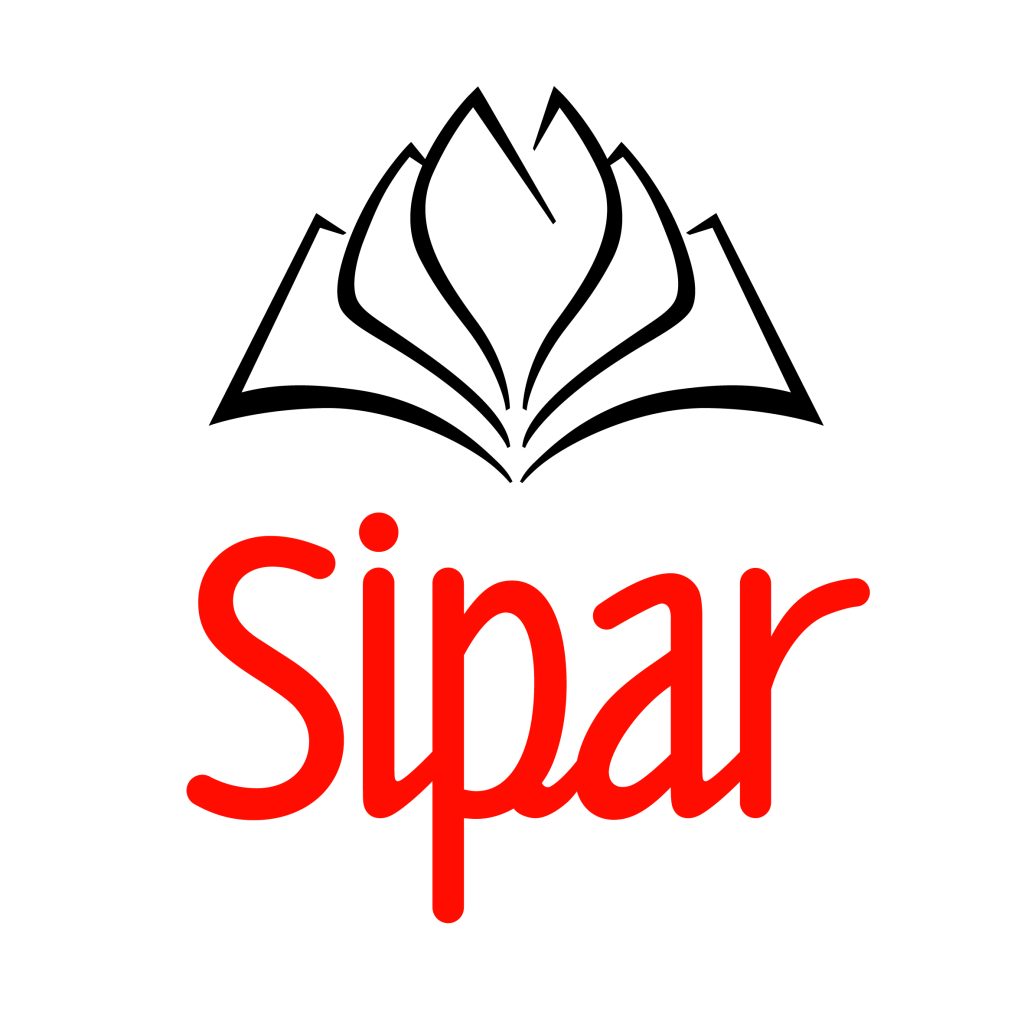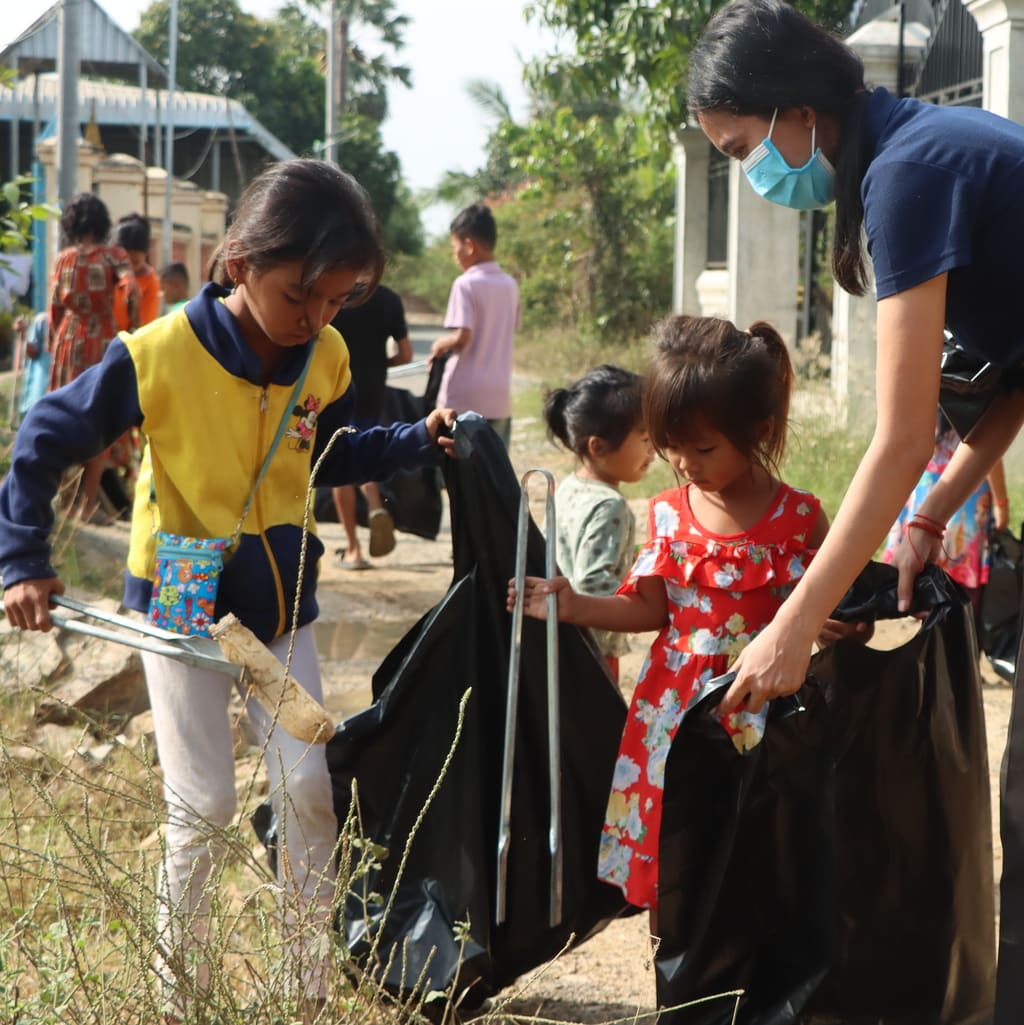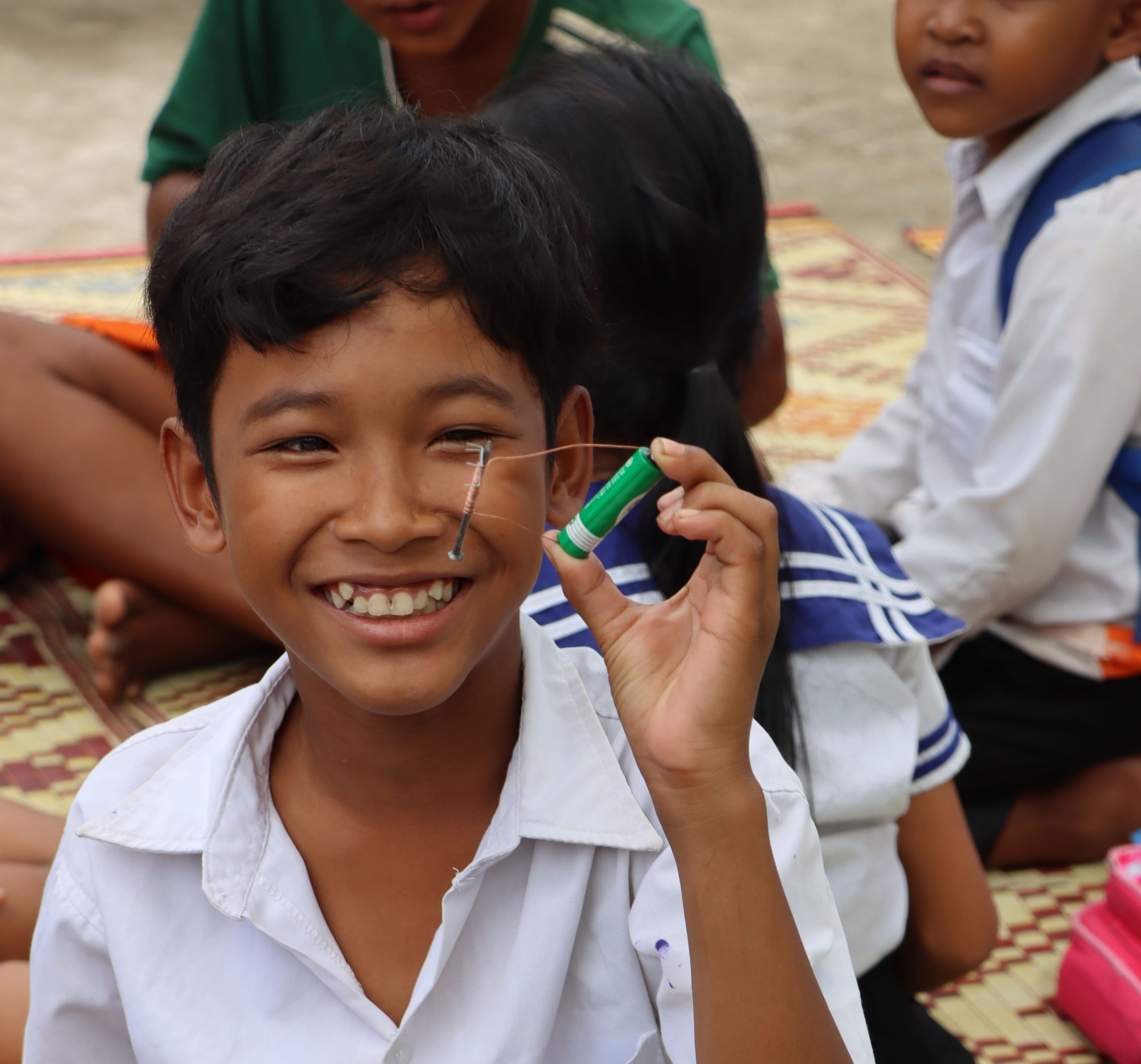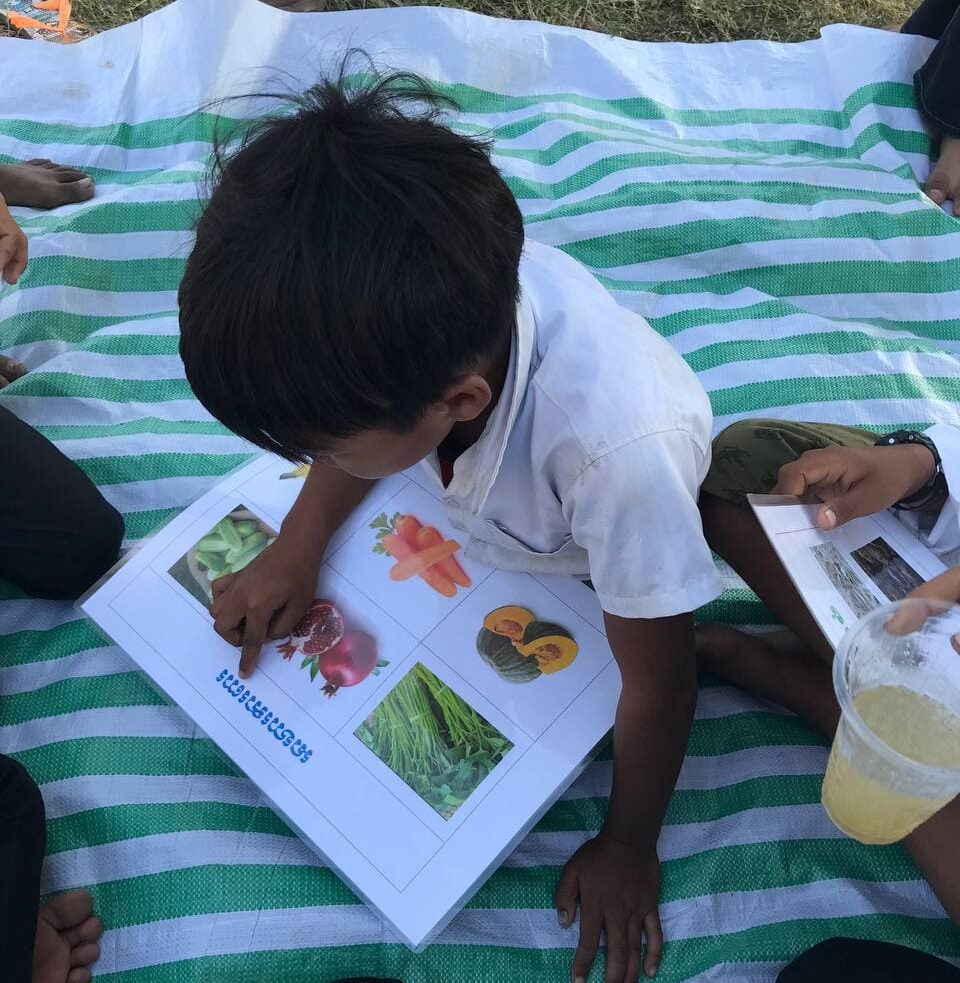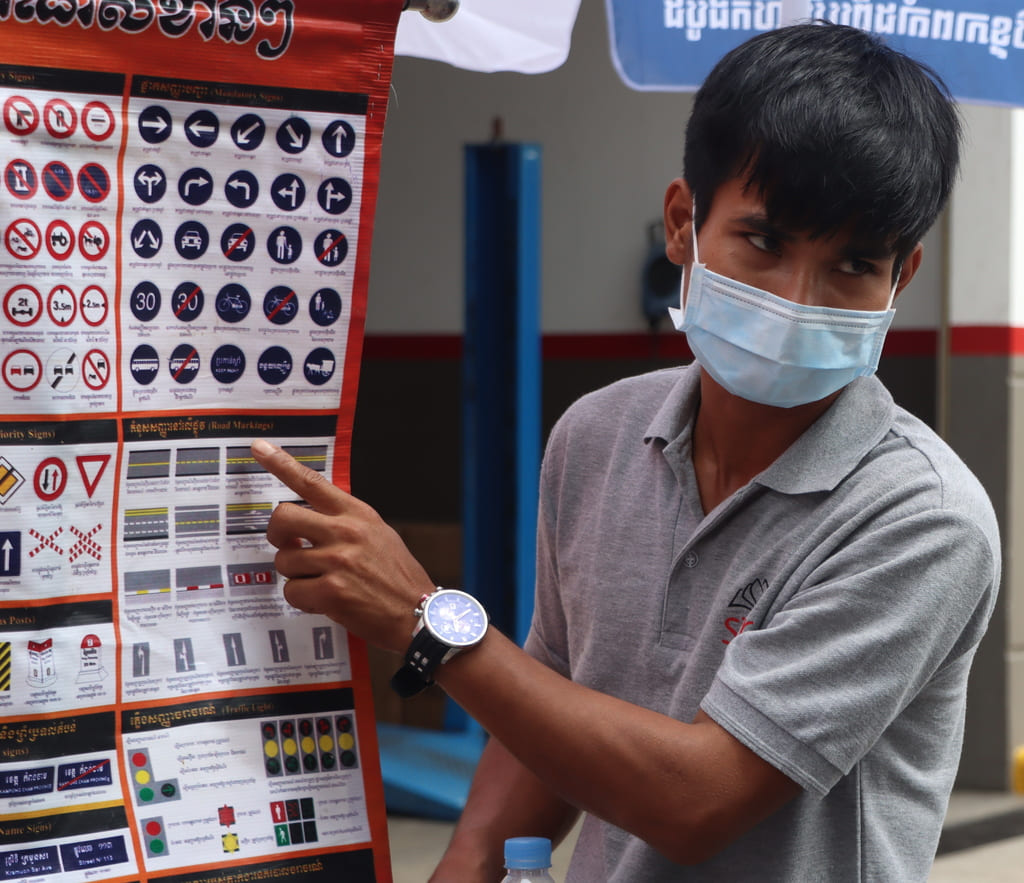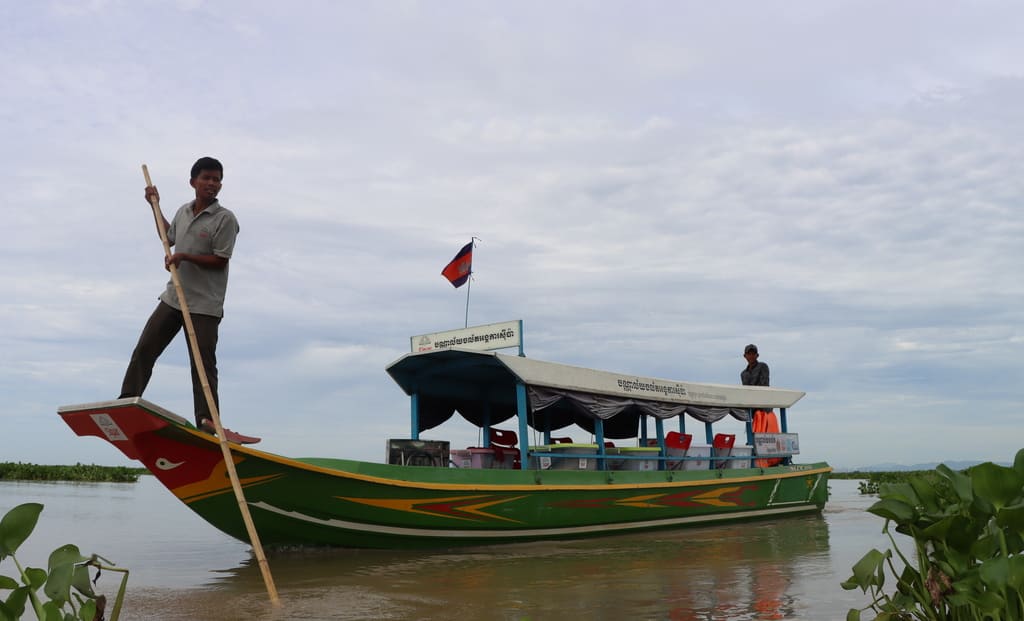
Born in 2000, the mobile libraries program counts 11 vehicules (7 minivans, 2 boat libraries, 2tuk-tuk libraries). They criss-cross a hundred different sites on the roads and waters of the seven provinces of Cambodia and Phnom Penh in order to bring the book to the underprivileged. The lack of infrastructure, such as public libraries, deprives suburban and rural communities of access to books.
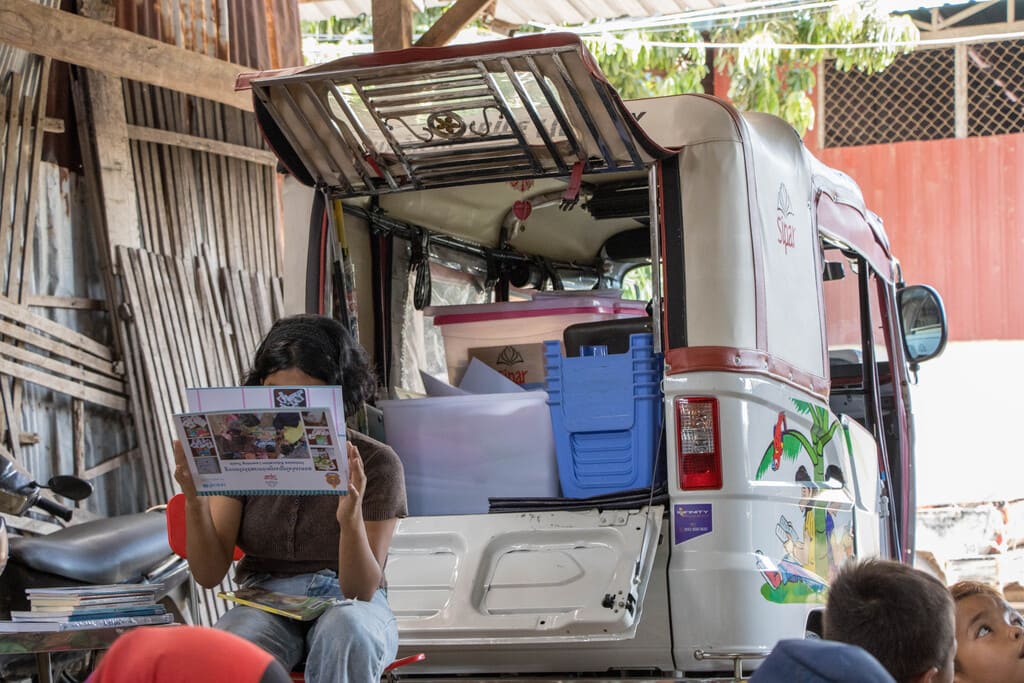
Typical session schedule
- Breaking the ice games
- Storytelling/reading a book aloud by the mobile librarian
- Children's free reading with the support of librarians
- Educational activities (coloring, experiences...) and tutoring
- Book loan service
Beyond the book, raising awareness
As part of our awareness-raising efforts, our librarian-educators have been trained in various social issues and regularly discuss these specific topics with children.
In addition to these themes, our teams have integrated awareness-raising sessions on social issues adapted to each environment and audience: health, hygiene, disability, gender equality, family planning, money management, domestic violence...
The aim is to fundamentally change behaviour and encourage Cambodians to become ambassadors for these issues themselves to their families and local communities.
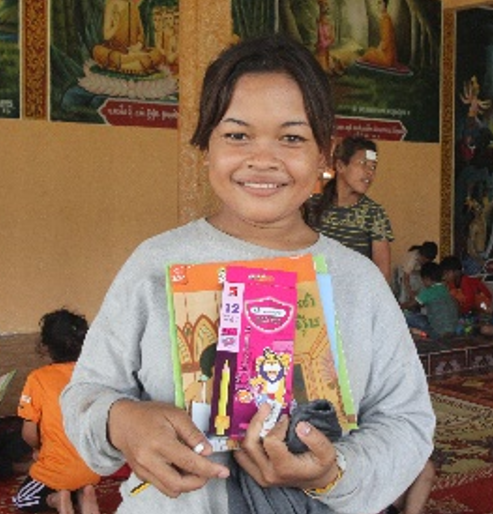
Every week, I always wait for Sipar's mobile library to arrive in my village so that I can return books and borrow new ones. I have two siblings at home. Whenever I bring new books home, they always read them. Among all the activities of the mobile library, I prefer free reading.
HENG Sreyneath
Sustainability at the heart of our actions
Sipar sets up micro-libraries in villages, where our mobile libraries have been operating for several years, in close collaboration with volunteers from local communities.
74 micro-libraries with a total of over 30,000 books have been set up and are managed by volunteers. Thanks to autonomous micro-libraries, our mobile libraries reduce the number of trips to new villages.
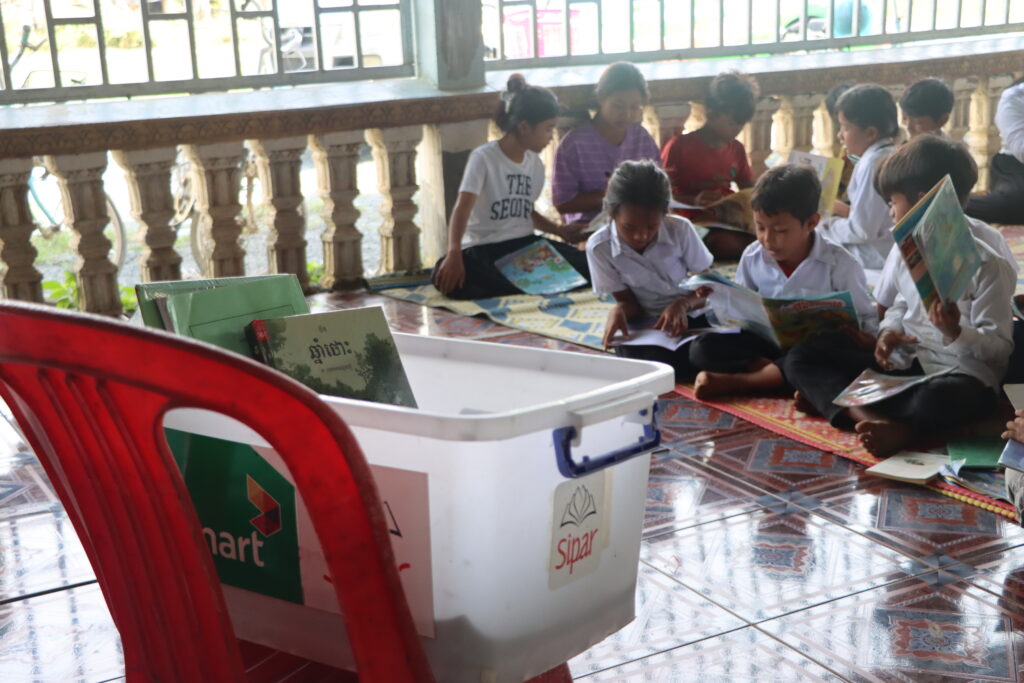
7
mobile library
2
tuk-tuk library
2
boat-library
126
sites served
75
micro-libraries in rural villages
12 700
beneficiaries
